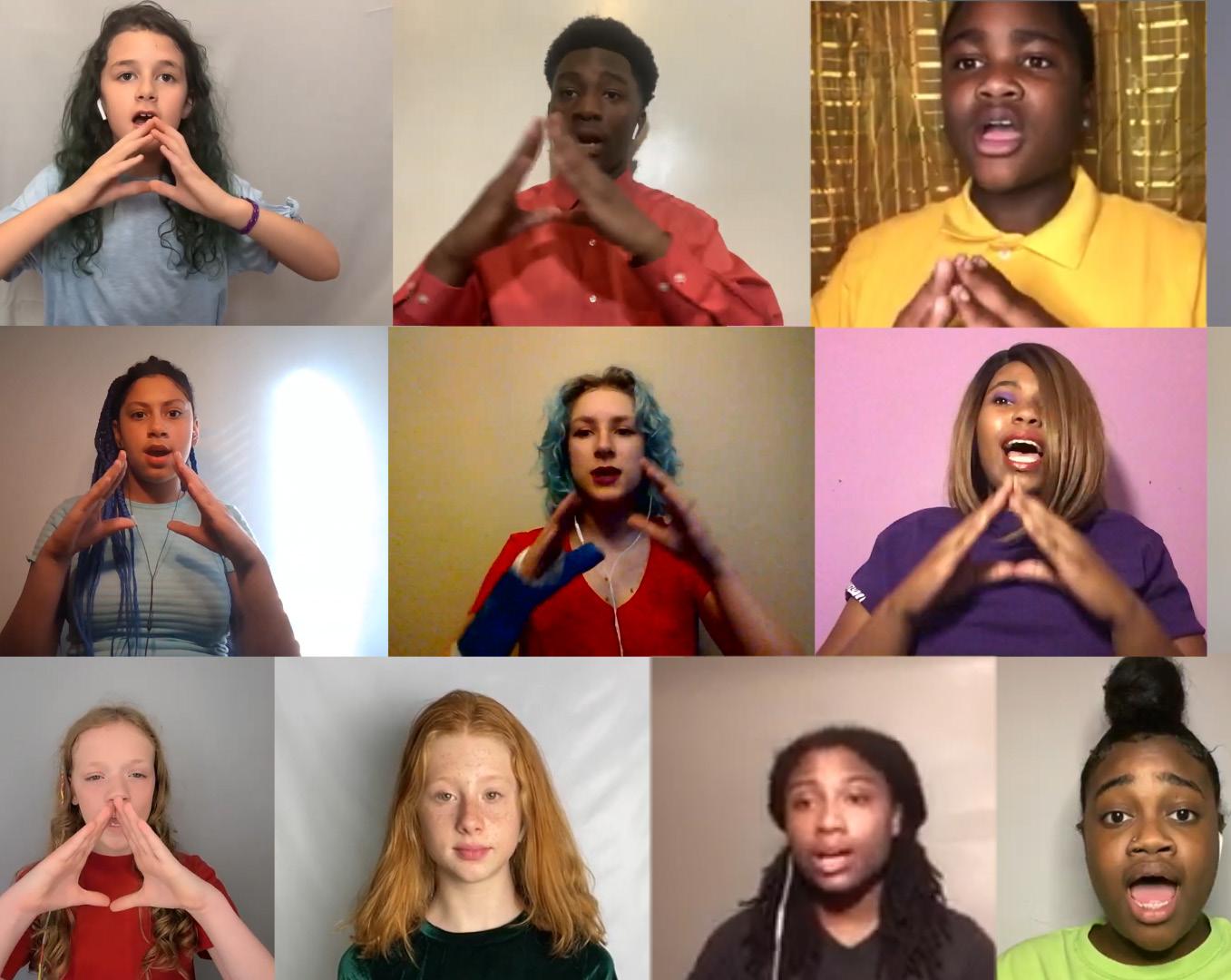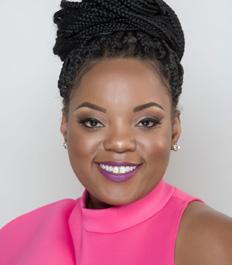
6 minute read
Actors Theatre: STAGING SUCCESS
SUMMER MUSICAL THEATRE CAMP AND WEST END RESIDENCY GO VIRTUAL
Actors Theatre of Louisville recently announced that all shows during the 2020-21 season will be conducted virtually to ensure the safety of its performers, staff and audiences. A However, it’s more than just the shows that are going virtual — Actors Theatre is striving to keep the bulk of its project development, events, and workshops confined to the digital realm. Two recent projects that went digital were the Summer Musical Theatre Camp and a residency in West End classrooms, both of which were originally planned to be held in-person.
Advertisement
Audience Magazine spoke with Actors Theatre of Louisville’s Director of Learning and Creative Engagement, Erica Denise, about the theatre’s transition to online programming in mid-March due to COVID-19.
Denise began working for Actors Theatre in early December, mere months before the outbreak. She led both the Summer Musical Theatre Camp and the West End classrooms residency and was integral in making the shift to digital.
According to Denise, the team at Actors Theatre was able to pivot fairly quickly to restructure the residency and musical camp, among other programs, to fit into a virtual environment. As it turned out, this type of educational programming translated pretty well into Zoom calls.
MUSICAL THEATRE CAMP
Actors’ Summer Musical Theatre Camp was initially planned around a production of Sister Act Jr., a musical comedy about a disco diva going undercover in a convent. The children (ages 12-18) involved in the camp would have been getting hands-on, in-person lessons in singing, acting, costuming, dance, stagecraft, and more in a communal setting with their fellow ensemble cast, all with the ultimate goal of putting on a full-scale performance of Sister Act Jr.

Student Leilani Bracey peforms during this year's virtual Summer Musical Theatre Camp. Photo courtesy of Actors Theatre.
What ended up happening, however, was that the participants who signed up for the revamped virtual version of the summer camp put together a musical revue featuring segments they filmed themselves. They still received training in the areas mentioned above, only over online, 4-hour sessions conducted in virtual meeting rooms.
To audition for the camp, students had to send a video of themselves singing 16 bars from a musical showtune. Twenty-one students were admitted into the 3-week program, and were informed beforehand of what to expect.
Denise says that, since students knew ahead of time that the camp was online, most of them did not struggle with the format as much as she had expected, and she was pleasantly surprised to find that most participants had a great time. Since they were working from home, students had to do quite a bit of independent work, implementing things they learned in the camp, to prepare for the revue.

Students participate in this year's virtual Summer Musical Theatre Camp. Photo courtesy of Actors Theatre.
Each student worked on two musical theatre songs of their choice while getting ensemble and individual instruction from the diverse array of teachers. Students also received a few days’ training with Louisville native Noah Ricketts, known for playing Kristoff in Broadway’s production of Frozen, who gave insight into vocal training and presenting on film.
One of the big issues of singing over Zoom was the slight delay, which can make it difficult for everyone to sing in sync with each other or with the music.
The camp ran from July 6-24 and culminated in a revue featuring multiple individual segments the young participants filmed themselves, much of which consisted of vocal performances. The many individual, filmed vocal performances were added to a host of other performances, creating the effect of a large-scale ensemble of campers. Denise says the inspiration for the revue came from Black Broadway’s Antonyo Awards, which featured a similar, virtual collaborative performance.
WEST END RESIDENCY
Actors Theatre’s 2-week residency at the West End School had a pretty seamless transition into an online format. It ran from June 29-July 10 and was the first of a series of ongoing community engagements dedicated to the development of Ali Summit, a play by break beat poet and playwright Idris Goodwin that is slated for a spring premiere in Actors Theatre’s 2020-21 virtual season.
Ali Summit is based on a historical moment in the life of Louisville icon Muhammad Ali: His conscientious objection to serving in the Vietnam War, and his meeting with other Black athletes to discuss his decision.
The play is funded by a $90,735 grant from the Doris Duke Charitable Foundation. A provision of the grant is to use the funding to creatively engage with the community, specifically the young Black male community, to help influence the development of the play and provide it with greater depth.
Originally, a series of community events was planned to foster engagement in the project, including a 4-day event during National Youth Violence Prevention Week that was to be held at the Ali Center. Unfortunately, all of these in-person events were cancelled, so Goodwin and his collaborators are connecting virtually to further develop Ali Summit. For 2 hours each day during the residency, students learned about Muhammad Ali, his legend, and history.
Activities included creating poems and answering writing prompts, elements of which may be featured in the final production. Among the themes of these poems and short essays were legacies, masculinity in America, what it means to be a legend, what it means to protect someone, and other topics and questions intended to provoke thought in the middle schoolers involved in the residency.
Denise says the residency was more difficult than the summer camp in terms of keeping the children interested, mostly at the beginning, though the majority of them eventually became eager participants. A Krumping class that was centered on movement was especially popular with many students.
“By the end of the week they were emailing us, ‘Hey this is so great, I had a good time, are we going to Krump tomorrow, did you get my poetry piece?’ It was amazing to see how the kids turned around to embrace what we were bringing,” Denise says.
She adds that the No. 1 problem in conducting these programs online was technology issues. Wi-Fi cutting out, poor audio and video quality (one student in the residency program could only communicate via typing in the chat), and other problems were occasionally disruptive.
“We did troubleshoot and figure out you can connect your device to your hotspot on your cell phone to get better service, so that worked for a while,” Denise says.
Despite the drawbacks of digital, there is most certainly an upside to all of the adjustments Actors Theatre has made to bring virtual programming to the community.
Thanks to the tech experience the team at Actors is gaining through recent online programming, they’re making some tentative plans to expanding their educational resources across the globe.
And beyond the current season, there’s a good chance the theatre may offer online productions alongside live, in-house shows well into the future, making it possible for anyone confined at home under non-pandemic circumstances to enjoy the arts scene in Louisville.



